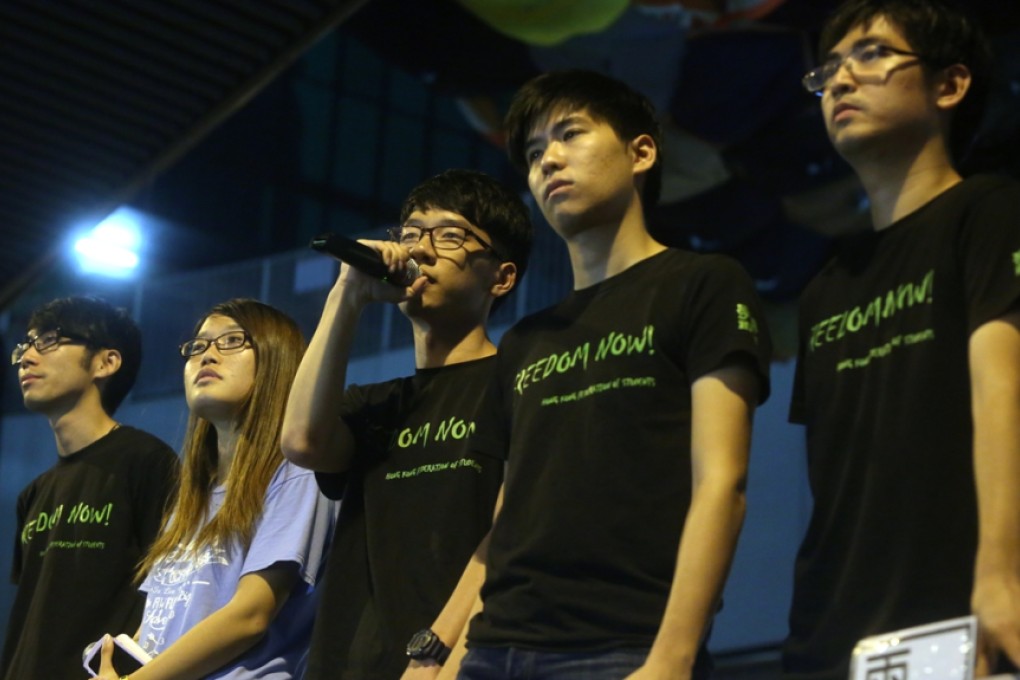My Take | A bitter lesson for Occupy Central's student leaders
The mass rally against national education turned Scholarism into a potent political force. Occupy Central, which catapulted the leaders of the Federation of Students to the forefront, has proved to be its undoing.

The mass rally against national education turned Scholarism - a group of secondary school activists - into a potent political force. Occupy Central, which catapulted the leaders of the Federation of Students to the forefront, has proved to be its undoing. This is no paradox.
The federation, which until recently represented student unions of the city's public universities, has already seen three unions - Baptist and Polytechnic universities and the University of Hong Kong - pull out. City University, which will stage its own referendum next week, is likely to follow suit. No wonder.
There is nothing like success in politics. Scholarism succeeded because the mass movement it helped to rally forced the government to back down. But Occupy Central has been a singular failure. If anything, the federation rather achieved the opposite, by galvanising the pro-China groups while causing bitter divisions within its own ranks. The only way it might have pulled it off was if the government was foolish enough to launch a violent crackdown. Otherwise, left to its own devices, the movement with no clear agenda or leaders just dissipated.
This was not entirely the student leaders' fault. The academics who theorised Occupy because it was something they read about in books were completely out of their depth. The pan-democratic elders like those from the Legislative Council offered little guidance and failed to gain any political capital as bargaining chips with the government. It was a classic case of a vibrant mass movement led by people who were more like the Three Stooges than real leaders.
But fair or not, the federation has taken the blame. If more student unions leave, this decades-old body may have to disband. This may not be a bad thing.
As individuals, union leaders can protest all they want. But as student representatives, their priorities should lie with their schools. If they really want to learn about politics, grass-roots organisation and negotiating with authorities, I suggest they start with localised agendas that could improve the living and study conditions of students on campus.
